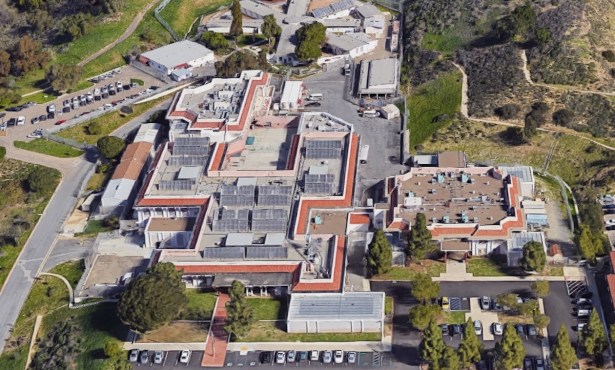Women Speak Out
Over 100 Women, Young and Old, Get Vocal
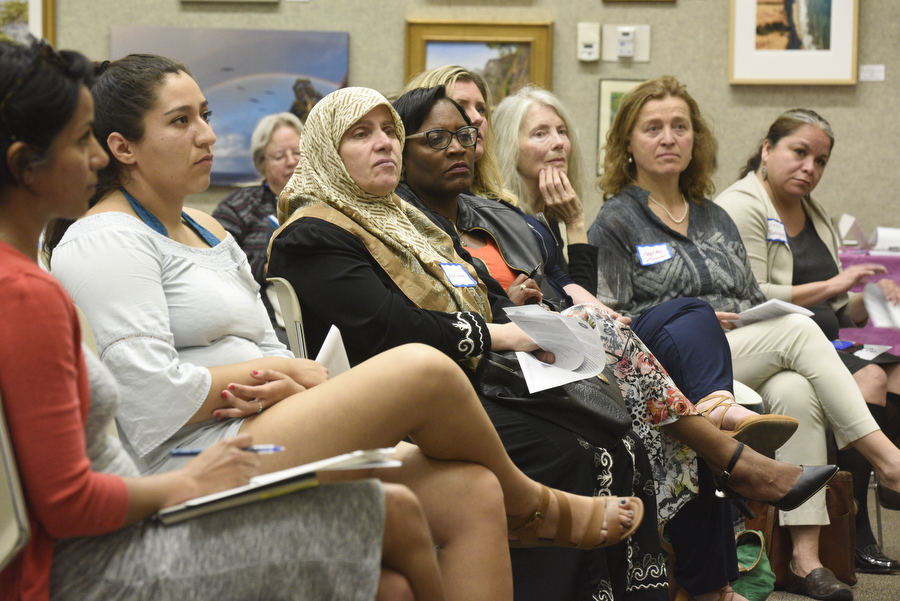
Righteousness radiated from the Faulkner Gallery in the Santa Barbara Library on Thursday night as female voices convened in the space for Women Speak Up, the County of Santa Barbara Commission for Women’s first informal listening session.
The room, energized by passionate female advocacy, welcomed “women and girls to share their thoughts, concerns, needs and ideas with their district appointees,” it said in Thursday’s event brochure. Met by an array of healthy hors d’oeuvres, a table of flyers from various local agencies – What Is Love’s “5 Tips For Parents About Teen Dating,” ICE info sessions and law services in both Spanish and English, brochures on how to get a domestic violence restraining order, Planned Parenthood cards and condoms – and a panel of five commissioners, more than 100 women of all ages came to do just that.
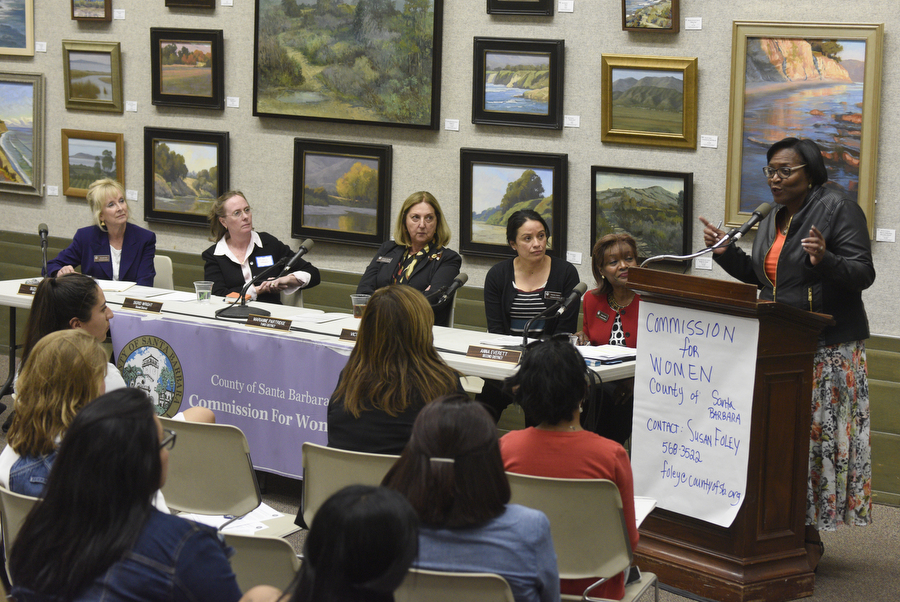
Before the formal program began, Commissioner Victoria Juarez from the 1st District stated that she’s observed a recent “change in conversations in both [her] personal and professional lives.” While she didn’t want to attribute this directly to Trump’s election, she said this session was “in light of the times.”
Other attendees did point fingers at the White House. One who worked at a youth and crisis shelter said that “under Obama, there was a lot of awareness on sexual assaults.” She said that “the new president is threatening our progress, human rights, and funding.” This “new president’s” name was not spoken.
Yolanda Robles, vice president of Clinical Operations at Planned Parenthood Central Coast, wanted to “make sure the White House continues to protect our rights and ensure that we are there to provide the great services that [they] do.”
Sharon Hoshida, acting director at UCSB’s Women’s Center, said she has been “feeling despair about where we are politically.” However, she added that women “have been activated in a way that has brought people together very productively.”
A Girls Inc. employee who said her name was Letti lamented that many girls in the program fear new immigration laws. “Girls as young as kindergarten are scared of their parents getting taken away,” she said. “We want more mentors in our center to inspire these young women.”
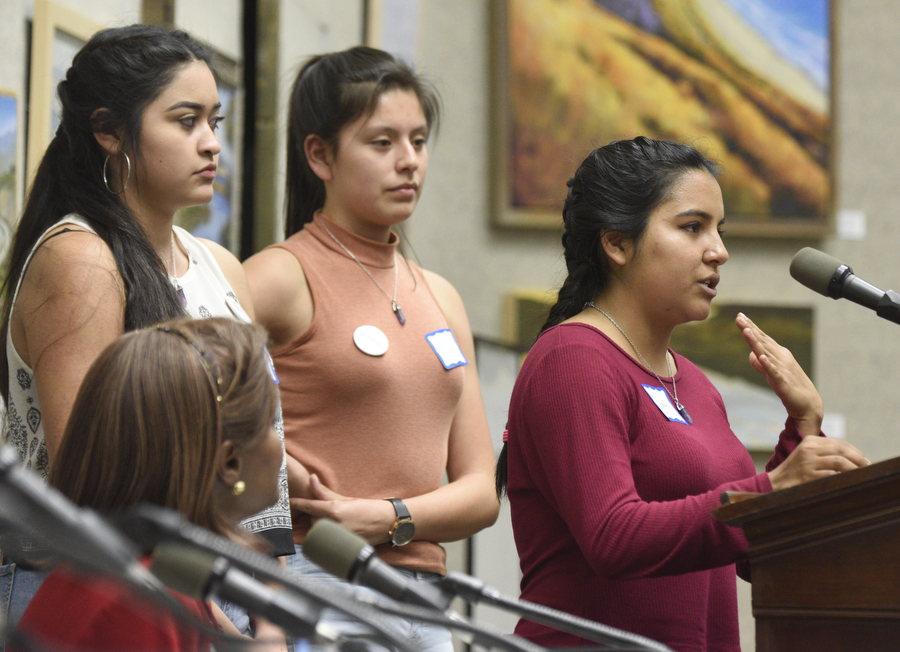
Several students at San Marcos High School also spoke about their concerns. Two Girl Scouts, Layla and Natalie, shared their pride that Girl Scouts was “inspiring younger girls, through a girl-led program, how to be better leaders,” said Layla. When an audience member asked a general question of what we can do about hate crimes in the community, Natalie responded that she is part of Santa Barbara’s Anti-Defamation League’s small youth group, which “starts at the bottom” by educating youth against bullying.
Three girls, Daniella, Jasmine, and Jimena, identified themselves as members of San Marcos’s Mujercitas program. “I’m tired of not being treated equal to guys,” Daniella said. She shared her frustration that at sports practices, boys are allowed to train with their shirts off, yet girls get in trouble with school administration if any part of their bra is showing. She said that blaming girls in such incidents is “misled” — instead, administration should focus on teaching manners to guys. “They can get distracted by anything!” she exclaimed.
This inequality at San Marcos resonated with Janet Wolf, 2nd District Supervisor “speaking as a mom of three daughters.” She was proud of all young women for speaking out and urged them especially to “talk to the policy makers of where you’re at, whether the school board or city council.” She said the county is lucky to have the local representatives that we do.
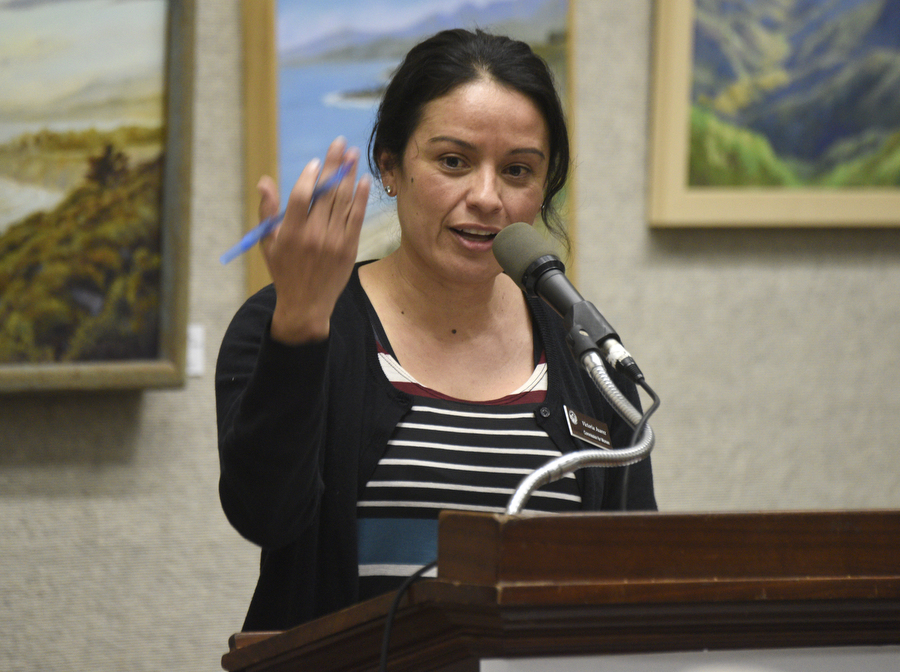
A woman who identified herself as the San Marcos “suspension lady” expressed her concern for the lack of counseling resources at the school. Through tears, she conjectured that Mujercitas should gain awareness, potentially even becoming a nonprofit organization in the county.
Planned Parenthood’s Robles commented, “It is important to educate young women, but we also have to educate young men.”
Others spoke about the significance of issues such as childhood trauma (served by CALM of Santa Barbara), the complexities of the young dating experience and frequency of abuse (assisted by What Is Love), the necessity of female mentors for girls (supported by Girls Inc.), rape, male-domination in Science and Engineering fields, racial profiling, juvenile crime, bisexual health, identity-confusion, possible elimination of the county’s Community Development Block Grant Program, and more.
Suzanne Peck, a commissioner representing the 2nd District, said that the commission will hold one more session in North County, then meet to create a report based on the discussions of the session that they will send to the county’s Board of Supervisors, including the commission’s recommendation of where to go from here. “Likely, we will recommend doing this on a regular basis,” she said in regard to community listening sessions.
Sigrid Wright, another commissioner from the 2nd District, said she was “a little pissed off but mostly inspired” by Thursday’s session. “This is the beginnings of a network,” she said.


